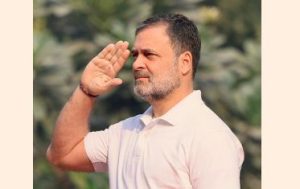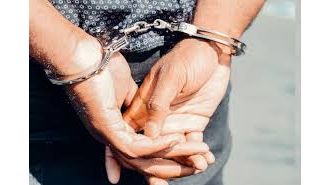In 1970, soldiers shot at students from Kent State University. People who survived the incident see similarities with present-day campus demonstrations.
The 1970 Kent State shootings marked a significant event in American history, sparking widespread campus demonstrations and causing many universities to close temporarily.

Dean Kahler was just a freshman when the chaos erupted at Kent State University. He, along with other unarmed war protesters, found themselves in the crossfire of the Ohio National Guard's M1 rifle rounds. As bullets rained down around him, Kahler quickly flung himself to the ground and covered his head in a desperate attempt to protect himself. But the pain was inevitable when he was struck by a bullet, feeling like a bee sting at first before realizing the gravity of the situation. The bullet had pierced his lung, shattered his vertebrae, and left him paralyzed. It was a tragic moment that would change his life forever.
The events of that day, May 4, 1970, marked a turning point in American history. The violence that ensued at Kent State was a stark reminder of the turbulent times of the 1960s, and it sparked a wave of protests on college campuses across the nation. The aftermath of the shooting also forced the temporary shutdown of hundreds of universities, leaving a profound impact on the country.
Today, more than 50 years later, the shootings at Kent State continue to hold great significance. As students once again take to the streets to protest against a far-off war, college administrators are faced with the challenge of balancing free speech rights with their responsibility to maintain order. And with a divided public witnessing the chaotic confrontations, the events at Kent State remain relevant and thought-provoking.
Every year on May 4, Kent State University holds a solemn commemoration to honor the lives lost. A gathering takes place at noon on the commons, near where the four students, Allison Krause, Jeffrey Miller, Sandra Scheuer, and William Schroeder, were killed in just 13 seconds of gunfire from National Guard members. It's a somber reminder of the tragedy that occurred on that fateful day.
Meanwhile, Dean Kahler watches from his home outside Canton, Ohio, as a new generation of college students demand an end to military action. He can't help but question whether college administrators have learned any lessons from the events of the '70s. As he reflects on the current state of affairs, he worries that they may be making some of the same mistakes that led to the violence at Kent State.
With protests erupting at universities across the country in recent weeks, tensions are high as police have made numerous arrests. But at Kent State, a different approach is taken. With a history of promoting civil dialogue, the university strives to embrace freedom of speech while understanding the dangers of polarizing attitudes. Students from opposing sides are invited to share their perspectives, and the school of Peace and Conflict Studies works to facilitate meaningful discussions.
Yet, despite these efforts, there's still an underlying tension on campus, particularly for Jewish and Palestinian students who don't feel safe. Adriana Gasiewski, a junior at Kent State, has covered the protests for the school newspaper and has witnessed the peaceful demonstrations. Still, she can't help but worry about the potential for things to spiral out of control, especially with the current wave of protests originating at Columbia University. The fear of history repeating itself with another tragedy like May 4 looms in her mind.
Temple University historian Ralph Young sees clear parallels between the current protests and those of the Vietnam War era. He believes that the scale and impact are comparable and that the heavy-handed approach of cracking down on protests will only fuel more anger and spread it to other campuses.
The situation is not without its controversies, with some accusing external groups of instigating violence, just as Ohio Governor James Rhodes did in 1970. However, many students see themselves as taking a moral stand against the war in Gaza and the disproportionate death toll of Palestinians. They hope to bring attention to the issue and create change through their protests.
As the protests continue, there's a call for university campuses to come together and find ways to allow students to be the conscience of America, as they have been throughout history. Gregory Payne, an Emerson College scholar, and expert on the Kent State shootings, believes that the legacy of this era will be defined by the protests, and he hopes that there will not be a repeat of the violence and bloodshed that occurred at Kent State.






